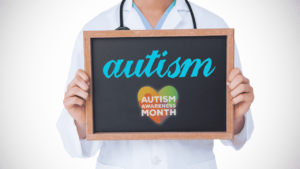When an older loved one completes alcohol detox and enters a medical rehab program, families often feel a swirl of emotions: relief, hope, fear, and sometimes overwhelm.
You may find yourself asking:
-
How do we best support them right now?
-
What’s really causing their symptoms—withdrawal, depression, or dementia?
-
How do we help them return to independence?
These are wise and important questions. Supporting recovery in older adulthood is different than in midlife. Older adults often face unique medical, psychological, and social complexities that require extra attention and care. The good news? With the right plan and support, recovery is absolutely possible at any age.
Here are 7 essential steps I recommend for families walking alongside an older loved one after alcohol detox.
1. Set up a care conference
The very first step is to bring everyone together. Ask the medical rehab team (physician, nursing, social work, physical therapy, occupational therapy, mental health) to meet with your family—and most importantly, your loved one. This care conference ensures that everyone is on the same page about your loved one’s goals and values. It also creates space for honest conversations about what independence looks like and what supports will be needed along the way.
2. Understand the “why” behind symptoms
Early in recovery, symptoms like confusion, agitation, or memory loss can have multiple causes: withdrawal and detox, depression or anxiety, dementia or cognitive decline, or delirium from illness or medication side effects. It often takes time to tease apart these factors. Stabilization can be slower in older adults, so patience is key. Remember, just because symptoms are present now doesn’t mean they will last forever.
3. Ask the care team clear questions
Don’t be afraid to get specific. Ask questions like: What do you believe is causing these symptoms? How long do you expect them to last? What is the recovery timeline you’re anticipating? Clear, direct questions not only reduce uncertainty but also help you advocate effectively for your loved one’s needs.
4. Request milestones for independence
Independence after rehab isn’t all-or-nothing. Work with physical therapy, occupational therapy, and social work to define clear milestones. For example: safely walking a certain distance with or without assistance, managing basic self-care (like bathing, dressing, and eating), or remembering and following medication instructions. These milestones help everyone measure progress and know when it’s safe for your loved one to return home.
5. Review medications carefully
Medication safety is especially critical in older adulthood. Older adults are at greater risk for drug interactions, overmedication, or side effects that mimic mental health or memory problems. Ask the medical team for a thoughtful medication review that considers which medications are essential, which may carry more risks than benefits, and whether dosages are appropriate for older bodies. This step alone can reduce confusion, falls, and other serious complications.
6. Plan for discharge
Leaving rehab is a vulnerable transition point. A strong discharge plan can make the difference between a smooth recovery and a quick readmission. Before discharge, make sure you have follow-up appointments scheduled with medical providers, psychiatrists, and mental health professionals, home health care or outpatient therapy arranged if needed, and transportation, meals, and medication supports in place. Think of this as building a bridge of safety and structure between rehab and home.
7. Clarify family roles
Finally, recovery works best when roles are clear and boundaries are respected. Sit down as a family and discuss what your loved one wants help with, what the family can realistically provide, and where professional supports will be needed. This step protects your loved one’s dignity and autonomy while also safeguarding family relationships.
Recovery is possible at any age
Recovery is possible at any age. With patience, structure, and compassionate support, older adults can heal, rebuild, and return to meaningful independence. A mental health provider can be an invaluable ally during this journey—helping families navigate changing roles, communicate with clarity, and stay aligned with their loved one’s wishes.
✨ If you’d like more practical tools for supporting older adults through recovery, find a licensed mental health provider who specializes with older adults here: Center for Mental Health & Aging Provider Directory.
If you found this article helpful, please share it with a colleague, friend, or family member who might benefit.
Remember, it’s only with your help that we can meet the mental health needs of older adults. Thank you for being here.




